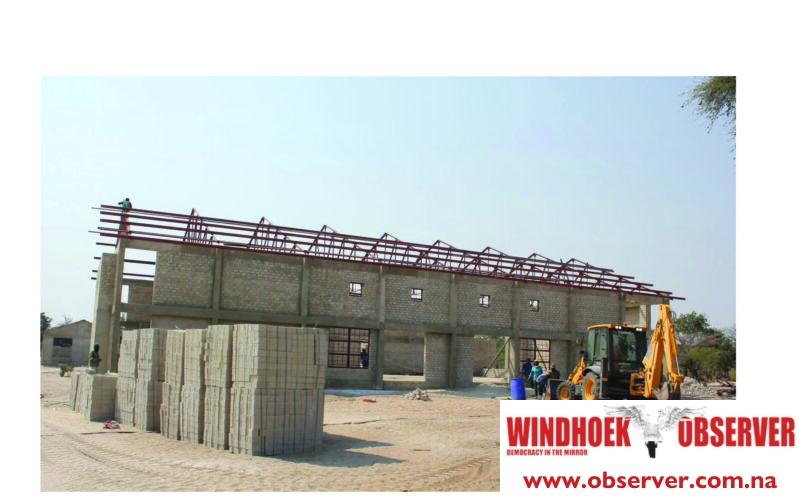Hertta-Maria Amutenja
Several education and sports projects handled by August 26 Construction in the Ohangwena region have been flagged for delays and poor workmanship by the parliamentary standing committee on education, science, ICT and youth development.
The committee’s deputy chairperson, Austin Samupwa, said that while some projects handed over to the company have been completed, others have been running for years without progress.
He raised concerns about accountability and service delivery after the committee carried out an oversight visit this week.
During the visit, the committee engaged with the regional governor and the directorate of education.
At Olivia Nakale Primary School, the committee found a newly built facility already showing structural defects.
The school, constructed by August 26, also lacks enough classrooms, forcing Grade 5 learners to attend other schools.
Samupwa stressed that closer monitoring is needed to ensure future projects are durable and well planned.
In Epembe, the committee inspected land allocated for a Vision School, a concept introduced more than 15 years ago to provide free education and support to disadvantaged learners.
Despite land being made available, construction has not yet begun.
“We have discovered that at Epembe the land has been given, but the construction has not begun. On that project, parliament must pronounce itself,” said Samupwa.
Seven months ago, the Windhoek Observer reported that the education ministry had abandoned plans to construct vision schools, including the Ohangwena Vision School near Epembe village, due to high costs.
Vision schools, which had been introduced in 2013 during the inauguration of the Rukonga Vision School at Divundu, were designed to provide free education and full support to learners from disadvantaged backgrounds.
At the time, former President Hifikepunye Pohamba had announced plans to establish six such schools across the country to address access, quality, and equity in education.
The vision schools were intended to provide free education, with the government covering all costs, including school uniforms, school fees, hostel fees, examination fees, toiletries, bedding, and all required learning materials.
However, more than 11 years later, no additional vision school had been constructed elsewhere in the country.
The committee also visited Eenhana, where a sports field started in 2012 remains incomplete.
Samupwa pointed out that according to the sixth National Development Plan (NDP6), such projects are meant to be completed within five years.
“If you look at NDP6, these are the projects that are supposed to be completed in five years. But also we have picked that Eenhana VTC has been contracted for now so that they can complete the nitty-gritty so it can hasten its completion,” he said.
At Lazarus Haufiku School near the Angola-Namibia border, the committee observed that accommodation for teachers remains inadequate.
“If you look at the teachers’ houses, it leaves a lot to be desired,” said Samupwa.
The committee concluded that poor project implementation highlighted the need to decentralise the capital development budget to regional councils.
Samupwa said giving regional councils greater responsibility over development funds would help them address community needs faster and improve project completion.




